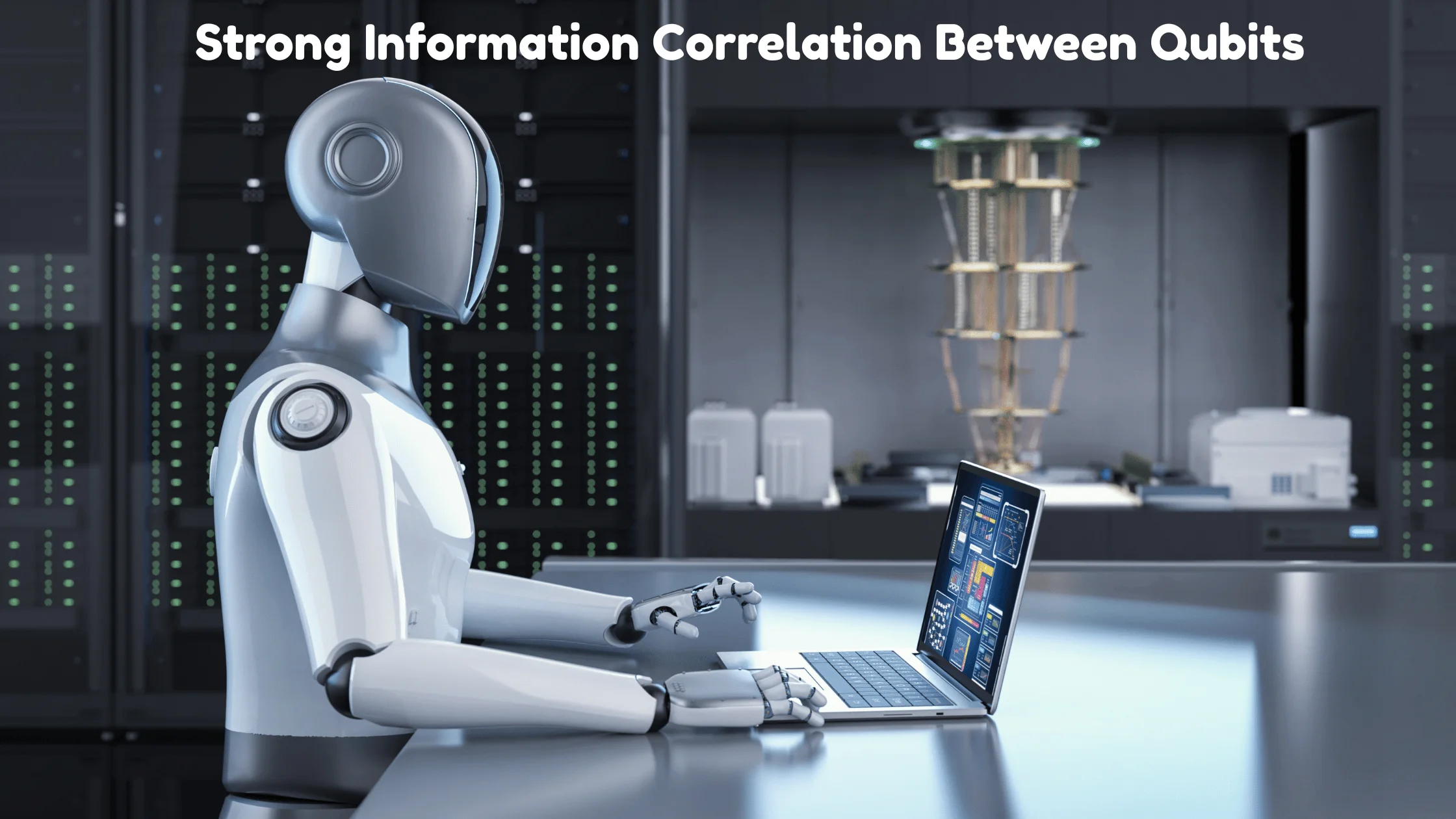Quantum Entanglement: The Strong Information Correlation Between Qubits
Published: 19 Jun 2025
Unique principles of quantum mechanics allow quantum computing to do things that classical computers cannot when it comes to processing information.

One of the most fundamental concepts in quantum computing is quantum entanglement, which refers to the strong information correlation that exists between qubits. This concept allows for qubit interconnection; the state of one qubit is directly related to the state of another.
Quantum entanglement, then, is a phenomenon with a very clear definition and some very broad implications.
What Is Quantum Entanglement?
Quantum entanglement happens when two or more qubits become connected. When this occurs, the state of one qubit is dependent on the state of another. This kind of correlation is so intense that if you measure the state of one qubit, the other one will instantly show you its state. And it doesn’t matter how far apart the two qubits are.
Entanglement has some distinctive features:
- Immediate Effect: A change in one qubit exerts an immediate influence on the other.
- Non-Locality: Even when separated by vast distances, entangled qubits stay interconnected.
When a measurement is performed on an entangled state, it collapses to show the observer some sort of outcome that is, at least, partially correlated to the outcome that will be shown after the measurement of the other subsystem (the one not being measured right then).
How Entanglement Works in Quantum Computing
Complex calculations can be performed much faster than using classical bits. Using entangled qubits allows for such opportunities as:
- Quantum simulations to run exponentially faster.
- Solving certain mathematical problems that are virtually impossible for classical computers.
- Allowing quantum algorithms (Apologies for the oversimplification!) to run on efficiently entangled states.
Given these factors, there are some things to consider:
- Processing Faster: Quantum algorithms utilize entanglement to address problems at a significantly quicker rate than classical machines.
- Communication Security: Entanglement is tested in quantum key distribution, which uses it along with other quantum properties to enable secure data transmission and make eavesdropping detectable.
Teleporting Data at Quantum Speed
When you think of teleportation, you typically imagine a human being zapped from one location to another. In the case of quantum teleportation, entangled pairs of photons act as proxies for the information being transmitted. Quantum teleportation is a method of transferring the quantum state of a system from one location to another without the physical movement of the system itself.
Real-World Applications
Testing is already underway in various arenas for quantum entanglement, and these fields include the following:
- Quantum Cryptography: Communication methods that are secure, such as Quantum Key Distribution (QKD).
- Quantum Networking: A quantum network connects quantum processors for near-instantaneous communication.
Why Quantum Networking Matters:
Compared to classical computers, quantum processors can solve certain kinds of problems exponentially faster. So, if we build interconnected quantum systems, they should be able to perform calculations and solve problems much more quickly and efficiently than classical systems.
Networked quantum systems have the potential to do not just what today’s supercomputers can do, but to do it better and faster.
- Quantum Sensors: Sensors based on quantum physics improve the precision of measurements taken in scientific research.
Conclusion
The very spine of the currently emerging field of quantum computing is something called quantum entanglement. It is this powerful physical process that is enabling the kinds of potent correlations between qubits, quantum bits, that are driving the advanced computational and highly secure communications we are beginning to see. As this emerging field grows, entanglement will undoubtedly continue to play a major role in the development of future quantum technologies.

- Be Respectful
- Stay Relevant
- Stay Positive
- True Feedback
- Encourage Discussion
- Avoid Spamming
- No Fake News
- Don't Copy-Paste
- No Personal Attacks

- Be Respectful
- Stay Relevant
- Stay Positive
- True Feedback
- Encourage Discussion
- Avoid Spamming
- No Fake News
- Don't Copy-Paste
- No Personal Attacks





